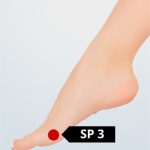- WE MOVED !!!
-
 Professional Acupuncture & Physical Therapy1118 East Superior Street
Professional Acupuncture & Physical Therapy1118 East Superior Street
Duluth, MN 55802(218) 724-3400 Clinic Hours
Mon8:00 am - 4:30 pmTue1:45 pm - 4:30 pmWed8:00 am - 4:30 pmThu8:00 am - 4:30 pmFriCLOSED

- Long Covid Booklet
Acupuncture
Research Review: Acupuncture for Insomnia

Nearly 30% of American adults struggle with chronic insomnia, and that percentage increases with age. Standard treatment includes sleeping pills and cognitive therapy. Cognitive therapy shows a lot of promise as an effective treatment and sleeping pills, though presenting some risks, can be helpful for the short-term. It is a condition, however, according to standard approaches, that can be treated, but unfortunately, not cured. And while many Americans don’t meet the criteria of a ‘chronic insomnia’ label, anyone who lacks proper sleep on a regular basis will eventually suffer physical, mental and emotional health consequences. Besides the obvious fatigue that comes along with many types of insomnia, there can be accompanying effects such as headaches, dizziness, and sore muscles as well as mood issues. One large study found that those with insomnia were five times more likely to suffer from depression than those who got adequate sleep. This is in addition to other associated effects on brain health, cardiovascular health, immunity and weight.
Acupuncturists typically always ask about quantity and quality of sleep no matter the initial complaint or reason for seeking treatment. This is because as holistic health practitioners, we recognize the enormous impact sleep has on the overall health experience. If there are any deficits when it comes to sleep, this will usually be part of the focus for treatment. In Traditional Chinese Medicine (TCM), night time is yin time, a time for rest, healing and recovery. It needs to be in balance with yang time (daytime) activity levels. This harmony of yin and yang is central to the TCM understanding of health.
Acupuncture takes an individualized approach to insomnia, as everyone is different, and there can be many reasons why someone is out of balance. In addition to external factors such as trauma or stress, a person’s internal environment will be looked at. A pattern assessment is done to evaluate both the abundance and flow of blood and energy (qi) in the body, excess hot or cold type disorders and any organ imbalances. But is it effective?
 In a review of random controlled trials evaluating the effectiveness of acupuncture for insomnia, acupuncture was found superior to medications in its ability to increase sleep duration for >3 hours. Also, acupuncture plus medications showed better effect than medications alone on total sleep duration. And finally, acupuncture plus herbs was significantly better than herbs alone on increase of sleep rates. Worthwhile to note that there were no serious adverse effects of acupuncture observed in any of the trials.
In a review of random controlled trials evaluating the effectiveness of acupuncture for insomnia, acupuncture was found superior to medications in its ability to increase sleep duration for >3 hours. Also, acupuncture plus medications showed better effect than medications alone on total sleep duration. And finally, acupuncture plus herbs was significantly better than herbs alone on increase of sleep rates. Worthwhile to note that there were no serious adverse effects of acupuncture observed in any of the trials.
According to Western physiology, acupuncture affects our ability to sleep by triggering the release of our sleep hormone: melatonin, and various other mechanisms still being studied, such as the activation of specific brain pathways involved in sensory processing . Acupuncture is also known to stimulate the vagus nerve, which helps shift the whole body into a more relaxed state. When the body goes into this relaxed state, not only does sleep quality improve, the body also turns on the immune and repair systems, cutting down oxidative stress and inflammation in the body.
Given the interrelationship of sleep and overall health, if all acupuncture did was improve sleep, it would still merit recognition as a valuable health system. But Acupuncture is prescribed for so much more! Call today at (218) 724-3400 to set up a sleep and overall health improving series of treatments and start feeling the benefits right away!
Using Acupuncture to Treat PTSD

Post-traumatic stress disorder or PTSD is usually associated with past and present military personnel. However, PTSD can affect anybody who has had some sort of traumatic or life changing event, such as a car crash, physical abuse, natural disasters or even the death of a loved one. Any situation causing emotional, physical or mental trauma can result in PTSD. In the U.S. alone, it is estimated around 24 million people are affected by PTSD. That means there are a whole lot of people who need help coping with the disorder. Luckily, Traditional Chinese Medicine offers hope for those people.
Some symptoms of PTSD include insomnia, anxiety, irritability, flashbacks, as well as feelings of shame, despair and hopelessness. All of these can lead to problems at work and home. It can also lead to serious health problems like clinical depression and even alcohol and drug abuse. The effects of PTSD are far-reaching and can be a lifelong battle for those afflicted with it.
Acupuncture treatments for PTSD focus on specific auricular points on the body. These points are responsible for controlling areas of the brain that help control nervous functioning while decreasing stress levels. Many military personnel experiencing PTSD can become violent if they are not helped. This is why the military is starting to offer battlefield acupuncture for soldiers in the field even before they are discharged from active duty. The Pentagon has been investigating the benefits of acupuncture for PTSD and so far, it has been found that combat veterans were relieved of most of their symptoms and their levels of depression and pain were greatly reduced.
 Many PTSD sufferers are leery of opening up about their trauma and thus are reluctant to seek psychological counseling. This is where acupuncture can play a key role in helping these individuals. While acupuncturists should be taking an in-depth medical history for each patient they treat, the questioning does not need to become as personal as that required when seeking psychiatric help. This makes it easier for PTSD sufferers to feel safe and somewhat more relaxed. Also, acupuncture has been shown to provide rapid benefits to patients through faster healing, whereas psychological counseling can take years.
Many PTSD sufferers are leery of opening up about their trauma and thus are reluctant to seek psychological counseling. This is where acupuncture can play a key role in helping these individuals. While acupuncturists should be taking an in-depth medical history for each patient they treat, the questioning does not need to become as personal as that required when seeking psychiatric help. This makes it easier for PTSD sufferers to feel safe and somewhat more relaxed. Also, acupuncture has been shown to provide rapid benefits to patients through faster healing, whereas psychological counseling can take years.
Auricular acupuncture is especially beneficial for those suffering from PTSD. There are a multitude of auricular acupuncture points that specifically focus on different areas of the brain. For instance, there is a point located at the base of the ear, where the ear lobe attaches to the side of the head that is labeled the limbic point. This point specifically addresses emotional life, the formation of memories, amnesia and alcohol or drug dependency. By needling this point, the patient can get relief from one or all of the aforementioned symptoms. This is quite remarkable and it makes the treatments require fewer needles.
Those suffering from PTSD should consult a doctor about the proper treatment and also discuss alternative medical options like acupuncture. If you or somebody you know suffers from PTSD, please consider acupuncture as part or all of the treatment protocol.
Acupuncture for Wellness

Should I get acupuncture if I’m not sick?
This is a question people often ask. For more than 2,500 years practitioners of acupuncture & Oriental medicine (OM) have emphasized the importance of preventative medicine rather than waiting until disease begins. Yang-sheng is the preventative branch of OM, yang-sheng means to ‘nourish life’. The tradition of drinking bone broth to nourish wellbeing comes from the yang-sheng branch of OM.
Another key concept from the yang-sheng tradition of acupuncture & OM is emotional balance is the key to wellness and longevity. According to OM there are external and internal factors that bring health out of balance. The external factors include environmental factors (weather, pollution, viruses, etc) while the internal factors are our emotions. The key to maintaining health is keeping our emotions in balance and not get stuck in any emotion.
Western allopathic medicine usually doesn’t recognize the role of emotions in creating illness beyond acknowledging stress exacerbates or causes 80 percent of all illnesses. According to OM theory, specific emotions are linked to specific parts of the body: being stuck in an emotion can bring that part of the body out of balance. Acupuncture & OM can help us stay healthy by balancing our emotions.
OM theory identifies specific emotions that bring us out of harmony in specific ways. How did this theory develop? OM practitioners have kept meticulous records for 2,500 years; there is a long tradition of scholarly observation and analysis of case studies. Through this long history patterns of health and disease were identified; these patterns held consistently true and thus became an integral part of OM theory.
In one of the oldest books on OM, “The Inner Classics of the Yellow Emperor,”compiled around 100 B.C.E., said excess joy slows and scatters qi, excess anger causes qi to ascend, excess sadness and grief weakens qi, excess worry knots and binds qi, fear descends qi and fright induces chaotic qi. The good news is each excessive emotion can be ‘harnessed,’ transformed and channeled into a virtuous emotion, which restores harmony and wellbeing. This transformation of emotions from excess to virtue is a vital aspect of yang-sheng branch of acupuncture and OM.
Among the most common of excess emotion is the tendency of overthinking, worry and rumination; this will tend to result in digestive issues and/or fluid metabolism concerns, as well as muscular tension and pain. To transform overthinking and worry into the virtue of creativity and dynamic insight, develop a regular meditation practice, even five to 10 minutes once a day can make a difference! You will develop the discipline to redirect worry and overthinking into dwelling in the present moment more often. A quote from “The Dhammapada” (The Buddha’s Path of Wisdom) expresses this, “As the bee collects nectar and departs without injuring the flower, or its color or scent, so let a sage dwell in his village.” Notice when you worry or overthink about something, think of your thoughts like a bee. Allow yourself to collect the ‘pollen’ of your thought while also germinating future ideas and transform your thoughts into honey. A bee does not cling to only one flower.

 Also try using acupressure at St36 and Sp3 to transform worry into creative action.
Also try using acupressure at St36 and Sp3 to transform worry into creative action.
St36 is the great harmonizer point: this point does it all! St36 energizes your motivation to accomplish your dreams while improving your energy, digestion and boosting the immune system! Locate this point by placing one hand just below the outer knee cap (index finger by the knee cap), use your other hand to find St 36 (just below your pinky finger) just off the outer shin. Pair St36 with acupressure at Sp3 to clarify your mind and regulate your digestion. Locate Sp3 along the inside of the foot, run your finger along the edge of the big toe until your finger ‘falls’ into a divot, about a three finger width from the base of the big toe.
Look for future articles for tips on transforming other excessive emotions and nourish your vitality and wellbeing with the wisdom of OM.
Acupuncture and Fibroids – Which Fibroids are you?
Uterine fibroids are benign growths on the wall of the uterus. They represent the most common gynecological non-cancerous tumors in reproductive females. It is estimated that 80% of women will have uterine fibroids at some point in their reproductive years. Many are symptom free and unaware, but for some women, fibroids can cause heavy bleeding, irregular periods, abdominal bloating and back pain (even though these symptoms are often wrongfully normalized). Fibroids can even grow large and press on vital organs like the bladder or bowel, eventually leading to digestive or kidney problems. The cause is not well understood, however. The theory is that abnormal muscle cells in the uterus are affected by estrogen and other factors in a way that drives tumor growth.
 Western treatment depends on severity. If asymptomatic, treatment is not needed, if the fibroid/s cause pain or other problems, treatment may involve surgery to remove the fibroids but unfortunately they can return. The rate of recurrence is high, at 30%. Estrogen contributes to the growth of fibroids which makes hormone regulation a main focus of fibroid management. Lupron is a type of hormone therapy that acts on the pituitary gland to stop estrogen production and start early menopause. A hysterectomy to remove the uterus, however, is the only known way to guarantee prevention of recurrence and is obviously not a desirable option for women looking to preserve fertility.
Western treatment depends on severity. If asymptomatic, treatment is not needed, if the fibroid/s cause pain or other problems, treatment may involve surgery to remove the fibroids but unfortunately they can return. The rate of recurrence is high, at 30%. Estrogen contributes to the growth of fibroids which makes hormone regulation a main focus of fibroid management. Lupron is a type of hormone therapy that acts on the pituitary gland to stop estrogen production and start early menopause. A hysterectomy to remove the uterus, however, is the only known way to guarantee prevention of recurrence and is obviously not a desirable option for women looking to preserve fertility.
So, even with surgery, it is important to deal with underlying causes. Chinese medicine takes a more holistic approach. Fibroids, in Chinese medicine, fall into the larger category of Zheng Jia (masses), as do other growths related to women’s health such as ovarian cysts, endometriosis and reproductive cancers. The causes of these masses are understood to be any of, or any combination of, the following:
Liver Qi stagnation
The liver is the organ that regulates the movement of qi and stagnant liver qi can reveal itself as typical PMS symptoms: irritability, breast tenderness, and cramps. The liver is also the organ that helps to rid the body of excess estrogen, so it is definitely a worthy focus point from both an Eastern and Western perspective.
Blood Stasis
Blood follows qi, so long term qi stagnation can result in blood stasis which is considered when symptoms such as more intense cramping and clots are reported.
Damp-Phlegm
Improper diet and digestion is said to lead to a buildup of damp-phlegm in the body. This accumulation, when condensed by other factors (such as heat, cold or poor blood flow) is thought to set the stage for the growth of various masses in the body. Associated symptoms can include indigestion, bloating, weight gain, and sometimes a watery menstrual flow.
Cold Accumulation
Exposure to the cold, especially cold that affects the uterus can be another cause of blood stasis which can eventually lead to tumors. Menstrual pain relieved by warmth is a sign of cold in the uterus.
Acupuncture and herbs can help eliminate or shrink smaller fibroids, as well as keep them from returning. Acupuncture redirects energy in the body to address patterns like blood stasis, cold, phlegm, and liver qi stagnation to help to restore a yin/yang (and consequently hormone) balance.
Chinese herbs are associated with a 72% reduction in bleeding in a study where over half of the participants experienced a reduction in size or a complete disappearance of their fibroids!
Another study compared treatment with acupuncture and herbs to treatment with a combination of herbs and steroids. All of the women saw some benefits, but the ones who had acupuncture treatment saw an overall greater reduction in the volume of their fibroids.
A 2002 study looked at alternative medical approaches for uterine fibroids. Upon comparing alternative treatments, such as TCM, bodywork and guided imagery against conventional treatment, the researchers found that the patients thrived in the alternative medical group. Fibroids shrank or stopped growing in 59 percent of the alternative treatment group compared to only eight percent of those in the conventional treatment group.
If you have any signs of fibroids, seek out a Western diagnosis, but also schedule some acupuncture with us at (218) 724-3400 to make sure you are addressing root imbalances, and so you can feel better fast!
5 natural ways to improve women’s health

Egg health
Getting pregnant can be frustrating when it isn’t happening as easily as planned. There are many reasons you could be dealing with a difficult pregnancy including egg health. There are many factors that play into egg health including blood circulation, stress and hormonal balance. For improving blood and oxygen flow, try to get some sort of exercise whether it is yoga, running or simply going on a brisk walk at least three times a week. Ask a massage therapist about abdominal massage, which can increase blood flow to the reproductive system. Stress can also play a very important factor in egg health. Find ways to destress with meditation practices, acupuncture and deep breathing.
Hormonal balance
Hormonal imbalances in women are common and can result in weight gain, fatigue, skin problems, infertility and PMS. Hormones are an important part to our body’s growth and development, mood, reproduction and metabolism. To keep your body in balance, avoid high omega-6 polyunsaturated fats that are found in vegetable oils. Reduce your caffeine intake. Too much caffeine can have a negative impact on the endocrine system. Most importantly, make sure to get an adequate amount of sleep each night. When the body does not get enough rest, hormones cannot regulate.
Breast health
There are many reasons that some women have a higher risk of breast cancer including both genetics and environmental impacts. Research has shown that keeping a diet of fresh, unprocessed foods can help the health of breast tissue. Chemical exposure from foods as well as other environmental factors have been shown to be high in women who have breast cancer. Foods to eliminate from your diet include highly processed foods, additives, canned foods and soy. Avoiding foods that are high in hormones and adding foods that are packed with antioxidants such as berries can help lower your risk of breast cancer.
Metabolism
Many women feel their metabolism has slowed over the years, making it harder to break down and burn calories and fat. Try adding more omega-3 fatty acids into your diet such as salmon and tuna. Omega-3 fatty acids have been found to help regulate blood sugar and lower inflammation, which can then improve metabolic function. Increasing strength training can also help give the metabolism a boost. The more muscle you have, the more your resting metabolism will increase to burn fat. Lastly, eating breakfast has been shown to give your metabolism a jump start for the day compared to eating your first meal later in the day.
Immune health
Don’t let the cold and flu season get you down this year. There are many natural ways to boost your immune system to prevent illness and to improve energy levels. Assess your stress levels and take action if you are feeling stressed and overwhelmed. Spend some time practicing deep breathing or finding an activity that you find relaxing. Try adding in more garlic and ginger to your diet. These natural ingredients contain properties that help boost the immune system and lower cold and flu symptoms.
